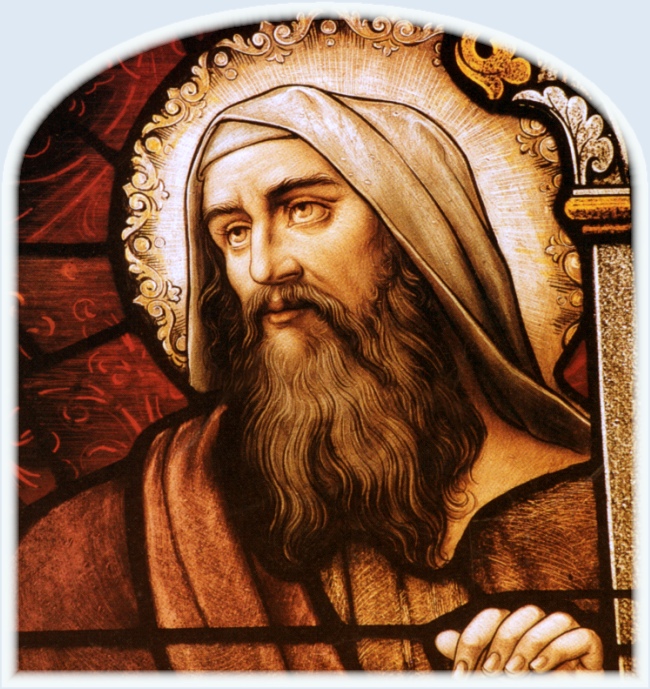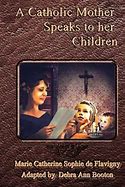
JUNE 11 is the traditional memorial of ST. BARNABAS (1st CENTURY), one of the very early Christian Jews.
Barnabas’ real name was either Joseph, or Joses, the Greek form. He was a Hellenic Jew, born on Cyprus. He was a Levite, therefore trained to be a teacher of the Law. Very likely, he had attended the school of Gameliel, possibly with Saul of Tarsus, in his youth.
Joseph, is mentioned in Acts 4:36-37 as the man who sold his land and gave the money to the new Christian community. After that incident, he was referred to as Barnabas, or son of consolation.
When Saul returned to Jerusalem after his conversion, Barnabas, who must have known him, introduced the previous persecutor to the Apostles, defending the newly converted man. Saul was a very difficult man for the Apostles to accept.
Within a few years, 39AD, Stephen was stoned in Jerusalem, creating a time of persecution, A number of the newly converted people fled to Antioch, the third most important city in the Empire. A sizeable minority were of the monied merchant class. The Church of Jerusalem sent Barnabas to that city to oversee the evangelization. The city of almost a quarter of a million was too much for one man to coordinate, so Barnabas went to Saul’s home town to recruit his help. Saul returned with Barnabas and they stayed a full year. This was a difficult task. The Jews of that city were not accepting of Christian teaching. Of the people known to live there is one, Manahen, a man who would have been from Jerusalem, as he grew up with Herod Antipas. If he ran away from the city, he probably did it because he was a Christian. Luke, a native of Antioch, eventually met this man, it would be assumed, and used Manahen as a source for his Gospel.
About 44-48 AD, Saul and Barnabas were sent back to Jerusalem for the first council, bringing with them contributions from the people of Antioch for the relief of the poor Christians of that city. One of the subjects of the council was whether Gentile Christians were obliged to undergo all the precepts of the Jewish faith. The answer was not all, including circumcision. An agreement was written out between Saul and Barnabas on one side and James, Peter and John on the other. They were admonished to not forget the poor of Jerusalem and were sent back to Antioch. They returned accompanied by the nephew or cousin of Barnabas, John Mark, a younger man. Saul gained in dominance and was referred to as Paul soon after.
To support all their travels, Paul notes that he and Barnabas had a side job, tent making. They would not depend on the good graces of others.
Their next missionary trip was to Cyprus, Pamphylia, Pisidia and other places. John Mark left them at Peruga to return to Jerusalem. The others continued and visited the governor of Cyprus, interesting him in the new Faith before returning to Antioch.
Peter came for a visit. He made an effort to associate with Gentiles, eating and talking with them, until some followers, in the city, criticized him, saying it was against Mosaic Law to do that. Peter pulled away from his socializing, despite the agreement made at the council. Barnabas followed suit. And Paul railed against them in front of the congregation. Peter, probably thinking Paul correct, returned to Jerusalem.
Paul may have been angry because of Barnabas’ backing of Peter, or he may have been upset about John Mark’s not staying with them on the trip to Cyprus, but when it was time to go on another missionary journey, Paul refused to travel with John Mark. Paul and Silas went to Syria and Cilicia. Barnabas took John Mark to Cyprus, where they had relatives. Paul and Barnabas did not travel together after that, as far as is known.
Around 61 AD, Barnabas was preaching in Syria and Salamis. He had great success and many conversions. Jews were sent from Jerusalem to intercept him and question him. Words got very hot at own temple where Barnabas was preaching. The teachers from Jerusalem dragged him out of the temple, tortured him terribly and stoned him to death. John Mark was a spectator to the murder and, afterwards, buried the body. He then carried on without his relative
“Now there were in the church, which was at Antioch, prophets and teachers, among whom was Barnabas and Simon, who was called Niger, and Lucius of Cyrene, and Manahen, who was the foster-brother of Herod, the tetrarch, and Saul.”
Acts xiii. 1

Available in paperback at Amazon

Recent Comments